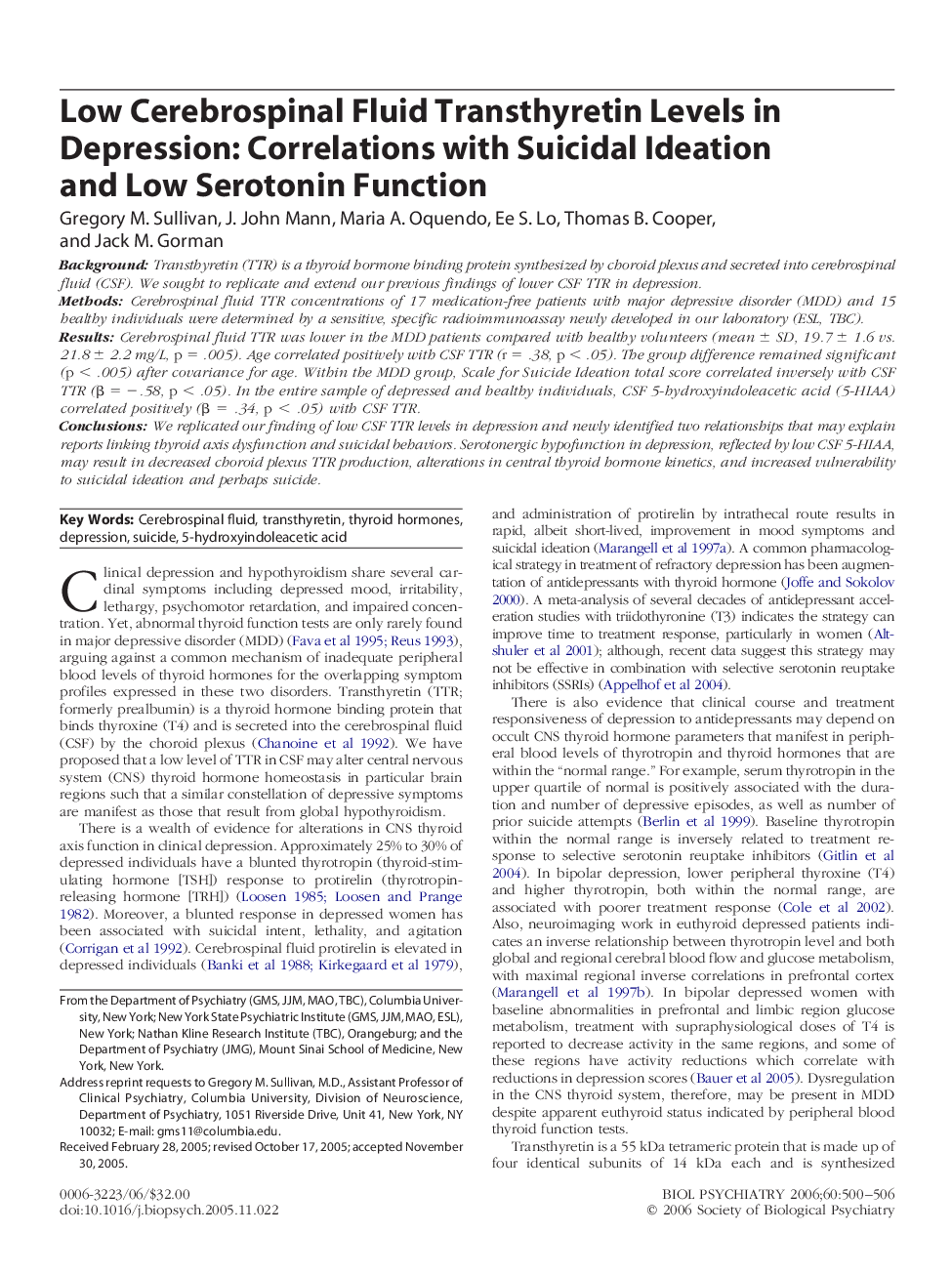| Article ID | Journal | Published Year | Pages | File Type |
|---|---|---|---|---|
| 4181252 | Biological Psychiatry | 2006 | 7 Pages |
BackgroundTransthyretin (TTR) is a thyroid hormone binding protein synthesized by choroid plexus and secreted into cerebrospinal fluid (CSF). We sought to replicate and extend our previous findings of lower CSF TTR in depression.MethodsCerebrospinal fluid TTR concentrations of 17 medication-free patients with major depressive disorder (MDD) and 15 healthy individuals were determined by a sensitive, specific radioimmunoassay newly developed in our laboratory (ESL, TBC).ResultsCerebrospinal fluid TTR was lower in the MDD patients compared with healthy volunteers (mean ± SD, 19.7 ± 1.6 vs. 21.8 ± 2.2 mg/L, p = .005). Age correlated positively with CSF TTR (r = .38, p < .05). The group difference remained significant (p < .005) after covariance for age. Within the MDD group, Scale for Suicide Ideation total score correlated inversely with CSF TTR (β = −.58, p < .05). In the entire sample of depressed and healthy individuals, CSF 5-hydroxyindoleacetic acid (5-HIAA) correlated positively (β = .34, p < .05) with CSF TTR.ConclusionsWe replicated our finding of low CSF TTR levels in depression and newly identified two relationships that may explain reports linking thyroid axis dysfunction and suicidal behaviors. Serotonergic hypofunction in depression, reflected by low CSF 5-HIAA, may result in decreased choroid plexus TTR production, alterations in central thyroid hormone kinetics, and increased vulnerability to suicidal ideation and perhaps suicide.
